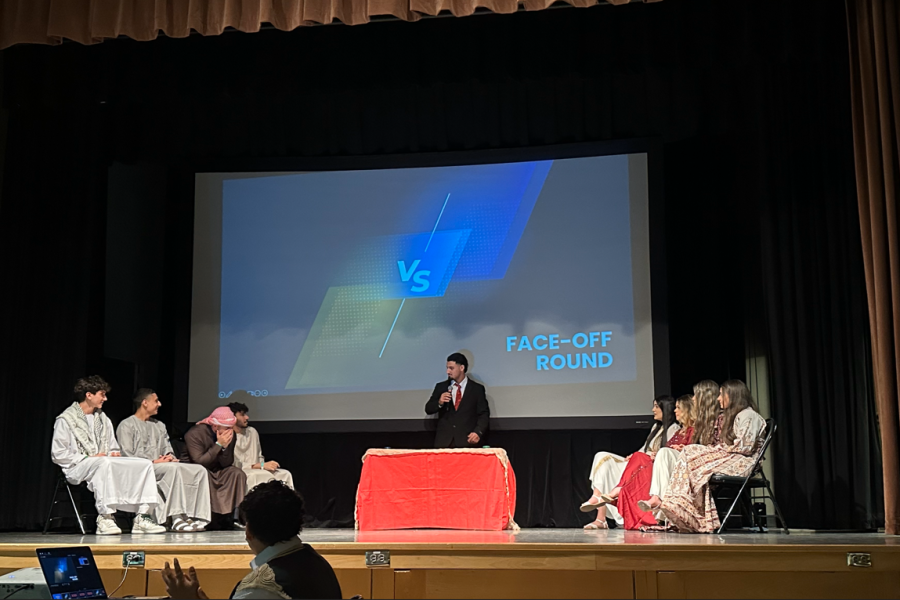There are over 7,000 languages spoken in the world, and yet I still need to look up words in one of my fat dictionaries every time I read a book published in English—my native language. I’ve reached the point where I can read children’s books written in French, but that’s nothing to brag about. Children can read children’s books in French. According to a 2019 survey published by the National Institute of Health, bilingualism “affects not only language development, but a range of other developmental processes, including perception, cognition, brain development, social development, and educational outcomes.”
Rates of language literacy vary from country to country but one ranking is certain: the U.S. is at the bottom. 67% of Europeans are at least bilingual, with many being multilingual. 55% of Canadians are bilingual while India’s population gets by with 25%. Only 20% of Americans are bilingual. That needs to change.
I was raised by a first-generation Italian mother who refused to teach me her native tongue.
She always said to me, “My parents came to this country from Naples, the scuffed-up end of Italy’s boot. You don’t want to go there. You speak English good, you get a good job. You can be anything you want to be in America—this is the land of opportunity!”
The only time I heard my mother speak the language I coveted was when her sister Margaret came to mooch off us. My Aunt Margie was a professional giocatrice (pronounced jock-a-tree-chay), or gambler, who quit her first and only short-lived job at a bank when she found a bookie in New York City who taught her how to gamble and win. My aunt was always calling someone a stunod (a stupid or crazy person), a chooch (same), or a boombotz (idiot) because she had no respect for people who didn’t gamble.
“Why should I work to make other people rich?” was her mantra.
In high school, I studied French but was constantly discouraged not to by family and strangers alike who admonished me with the cliché: French is for snobs. Fast forward a few decades where I am now taking French 203 at PSU—my last term to meet my foreign language requirement. The French instructors I’ve encountered at PSU have been kind, approachable, generous with their time and clearly have a passion for the subject they teach.
PSU French Professor Julie Nelson is currently teaching the asynchronous online French 203 class. I asked her why learning French is important.
“It’s a beautiful language full of rich, cultural heritage,” Nelson said. “Roughly half of the words in English come from the French language, so to learn French is to better understand English. Moreover, there are 320 million French speakers across the world and French is the 5th most spoken language in the world which means that being able to speak French brings an important skill set to the job market.”
If you search online job boards such as Indeed.com, you can find well-paying, interesting work as an interpreter, tutor, teacher at a public or Catholic school, instructor at a French immersion school such as Le Monde or L’Etoile, lecturer, e-commerce entrepreneur, translator, marketing and business developer for French companies, among other opportunities. There’s always a demand for voice actors! Once you become proficient in a foreign language, you can showcase your talent by contributing to podcasts, movie trailers, TV commercials, video games, radio ads, narration for animation projects, audio books and more. Bilingual job seekers post their CVs (French companies prefer the term ‘CV’ to ‘résumé’) on sites such as Backstage, Voice123, Voicebooking, Voices and even Upwork. We all need money to pay our bills—universities like PSU need to do a better job of helping students with a passion for language connect the dots between studying a foreign tongue and finding meaningful employment.
Of course, meeting your two-year foreign language requirement is typically not long enough to become fluent in a foreign language. (And, thanks to PSU’s misguided budget cuts to the Humanities, students interested in French and Italian will have to pursue proficiency in those languages elsewhere.) Many students need to work to earn money outside of taking a full 12-credit course load and it’s easy to fall behind. Apps such as Duolingo and Memrise are free and can be utilized on your phone in between class and daily commutes.
Such learning tools weren’t around in my first youth, and no one I knew spoke another language other than the slurred speech spilling into the streets from liquor stores and bars. I grew up in a family shaped by generational poverty and trauma. Most of my relatives were ambitious, but they never caught on to the fact that education often leads to financial stability. They cut corners, got fooled by pyramid schemes and filled trailers with unread and unwanted magazines from Publishers Clearing House. I was fortunate to escape the mold. With a role model like my Aunt Margie—someone who liked to stop strangers in the street to ask if they were feeling lucky then demand from them a number she could play at the track—I have never been tempted to “play the numbers game,” as the saying goes in grifter economics. I refuse to even play Bingo. It would be nice if learning a foreign language made me more employable, and nicer still if my efforts could stave off cognitive decline. Mostly though, I just think French is the most beautiful language in the world. Learning such a gorgeous language keeps my mentality above the din of ugly words that pummeled my childhood and early adult years.






